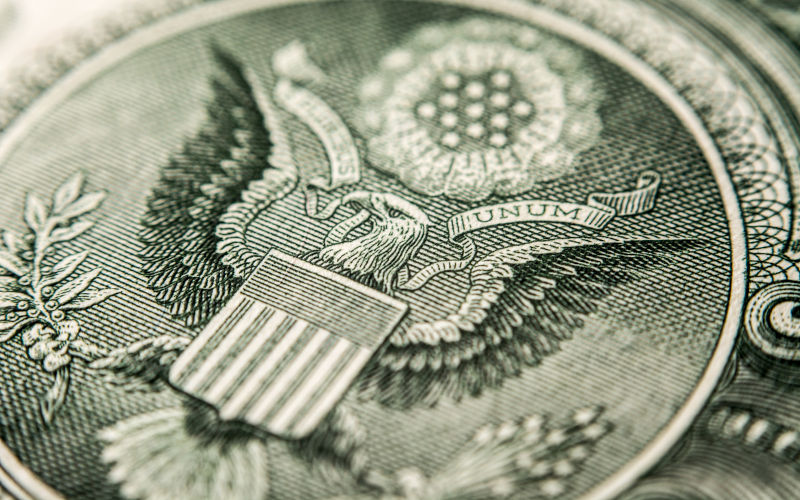Act of self-harm: US Defund Chinas Allies bill targets Solomon Islands
April 26, 2023
Lawmakers in the US Imperium are getting stroppy. China is on the rise. Russia is not folding. Iran and Saudi Arabia have decided, if not to bury the hatchet then certainly cover it. So it comes as little surprise that Congress now has, before it, the Defund Chinas Allies Act (HR 2511), an instrument that is bound to pass and enchant the Empires followers in Canberra.
On April 6, Congressman Andy Ogles introduced the bill hoping to stop the flow of US taxpayer dollars funding political support to the Chinese Communist Party (CCP). The instrument, cosponsored by representatives Tim Tiffany, Lauren Boebert, Josh Brecheen, Mary Miller, and Barry Moore, also prohibits foreign assistance, including humanitarian aid, to States recognising Taiwans sovereignty.
In of itself, this was an odd formulation, given that countries receive sources of aid and funding from a number of sources without necessarily becoming satellites or vassals. But these are testy times in the binary of US power and those who do not play along. To that end, the press release treats China as bacillus and fiend. The CCP has infiltrated and established foreign relationships with 21 countries that currently benefit from American aid.
According to Ogles, the bill would prohibit the further distribution of any foreign assistance to the increasing number of Latin American and Caribbean nations pledging their allegiance to Beijing. His lament: the use of US taxpayer dollars to the tune of $800 million to indirectly fund continued political support for the genocidal Chinese Communist Party (CCP). American leadership must act to protect the national security of our nation.
And thats not all. The list spans various Latin American states, such as Honduras, Costa Rica, Uruguay, and Bolivia; Caribbean states such as Barbados, Jamaica, and Trinidad and Tobago, and, for good measure, a Pacific component: Kiribati and the Solomon Islands.
Given the proximity of these countries to the United States, the bill reads, these switches in political allegiances necessarily represent a more tangible threat to the United States national security interests and must be confronted.
The lawmakers, having declared these states a nuisance to Washingtons interests, go even further, fanning the flames of an imminent US-China war over Taiwan. US adherence to the one China policy was a canard dictated by the Chinese Communist Party, and was nothing less than incomprehensible. Never mind that it remained a decades-long understanding between both powers. What Washington should do, instead, was give Taipei full diplomatic relations.
Many of the countries on the list are more than familiar with the brute nature of US power. But including such small states as Kiribati and the Solomon Islands is an indication of how far the lawmakers on the Hill are willing to go to contain Beijing.
On September 16, 2019, Honiara opted to switch its diplomatic relations to the PRC. This was wounding to Taipei, given that the same country was one of the few which recognised Taiwan as an independent national entity in 2016. Taipei and Honiara had, after all, signed a bilateral agreement acknowledging that Taiwan would fund the main stadium for the 2023 Pacific Games.
In response to the withdrawal of recognition, Taiwan declared the termination of diplomatic relations with Solomon Islands with immediate effect, the end of all bilateral cooperative projects, as well as the recall of the staff of its Embassy, technical mission, and medical mission stationed in Solomon Islands.
The focus from Washington regarding Honiaras slant towards Beijing has been clear. The United States, went a notice to Congress from the US State Department, needs a permanent diplomatic presence in Honiara to effectively provide a counterweight to growing (Chinese) influence and deepen our engagement with the region commensurate with its importance. Visits from high-ranked officials in the Biden administration have been regular.
The latest legislative move adds a menacing note. Here is US power, unrefined, undiplomatic and unvarnished, keen to attack any country for adopting a position different to its own. Importantly, its a power threatened, concerned that influence is on the wane, and the message, rusting. And it all tallies: the war-making pretensions of AUKUS pillowed by notions of law, order and prosperity, all being about containment and confrontation; the threats to countries that dare adopt an independent line towards Beijing; and the sheer clumsiness of it all.
This measure is also bound to excite the ASPI-US defence lobby in Canberra. Canberra has been trying, in vain, to seduce Honiara into moving away from Beijing, with very much the opposite results. The China-Solomon Islands security agreement is a case in point, one that was not defeated by any number of diplomatic pleas from Canberra.
The Solomon Islands Prime Minister Manasseh Sogovare, in his own way, has told them to jump, though happy to receive the largesse from the Australian taxpayer. The 2022-23 bilateral allocation amounts to A$103.1 million.
The implications for countries in the Pacific are clear. In the recognition game, those taking Beijings position will suffer. It is a monstrous act of self-harm for the US, given its sudden awakening to the need, on its part, to pursue a more aggressive policy of cash-and-bribe persuasion. But for this hegemon, money is clearly not enough.

